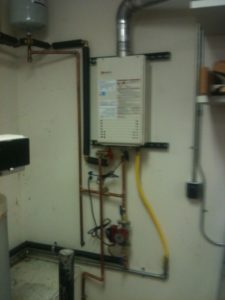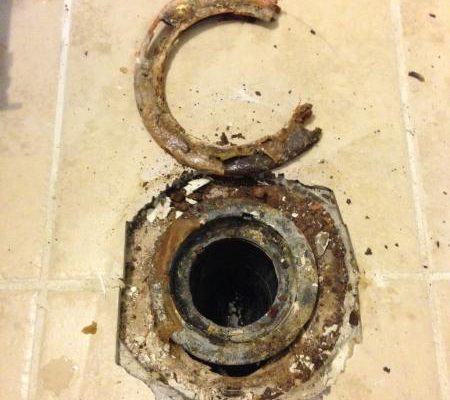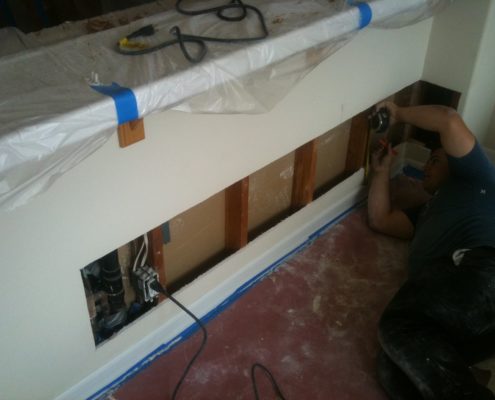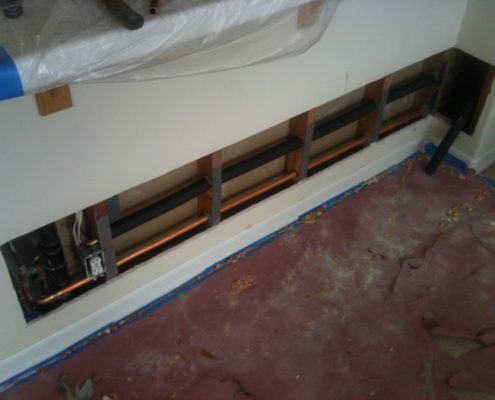Tank-Type versus Tankless Water Heaters
Tank or Tankless Water Heaters?
While tank-type heaters are the norm in the United States, a tankless heater is sometimes the better choice. Tankless heaters (also known as instantaneous or demand water heaters) heat the water as it is called for at the tap. Here’s how they compare with tank-type heaters.
- Tankless heaters, ranging from about $300 to $1,000, usually cost two to three times as much as comparable tank-types.
- Tankless water heaters, being smaller, can fit into spots where you’d never get a tank.
- If you replace a tank with a tankless, both gas line size and venting or power supply (if electric) will probably need to be increased. The heating elements or burners are typically much larger than in storage units. (A tankless gas unit has a capacity up to 170,000 Btu/h versus 40,000 Btu/h typical for gas storage.)
- Tank heaters (with adequate distribution plumbing) can serve multiple taps simultaneously. Tankless water heaters are limited. Smaller gas models and essentially all electric models are meant for one-person households or point-of-use applications. All but the largest gas units have difficulty serving multiple taps.
- When the flow is kept within range, tankless water heaters can, however, provide unlimited hot water (if it is needed). However, if minimum flow isn’t met, the heater will quit heating. If maximum flow is exceeded, water at the tap will cool down. In addition, temperatures can fluctuate with changing water demand.

- Upkeep on tank-type heaters is simpler. They’re less complex, and it’s easier to find people who can work on them. Parts for tankless heaters are often difficult to get.
- A tankless will generally outlast an unmaintained tank-type.
- Tank heaters are less likely to be damaged by freezing weather.
- Tankless heaters pose less risk in an earthquake (less weight to restrain).
- Tankless have no anode and so are not susceptible to sulphur odor.
- Tank-type heaters are more tolerant of hard water conditions. Lime buildup in tankless heaters (essentially mini-boilers) cuts efficiency significantly.
- Having tankless units in easily accessible locations in kitchens and baths would be a big change from current practice and codes.





Follow Us!